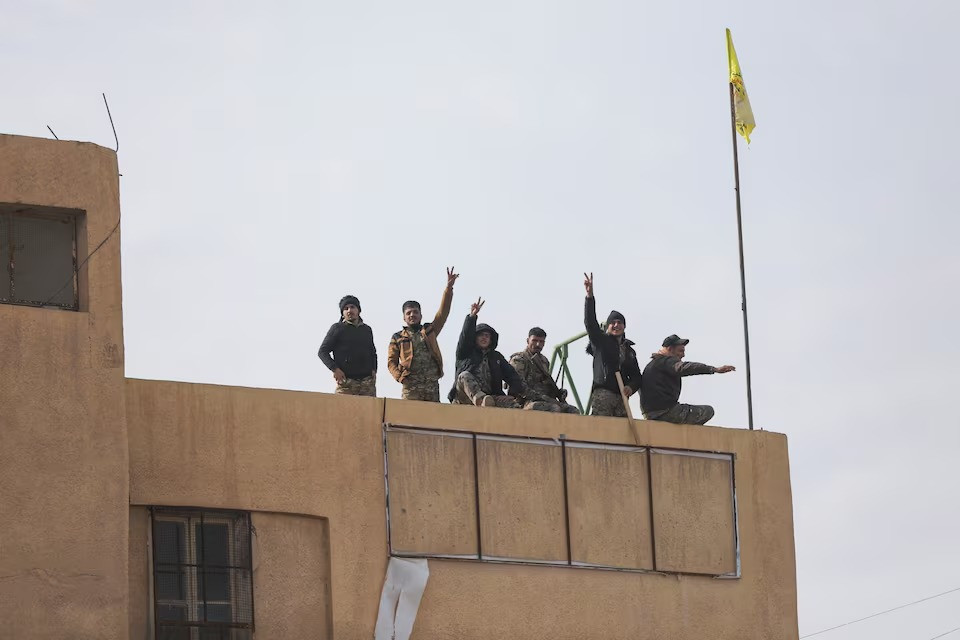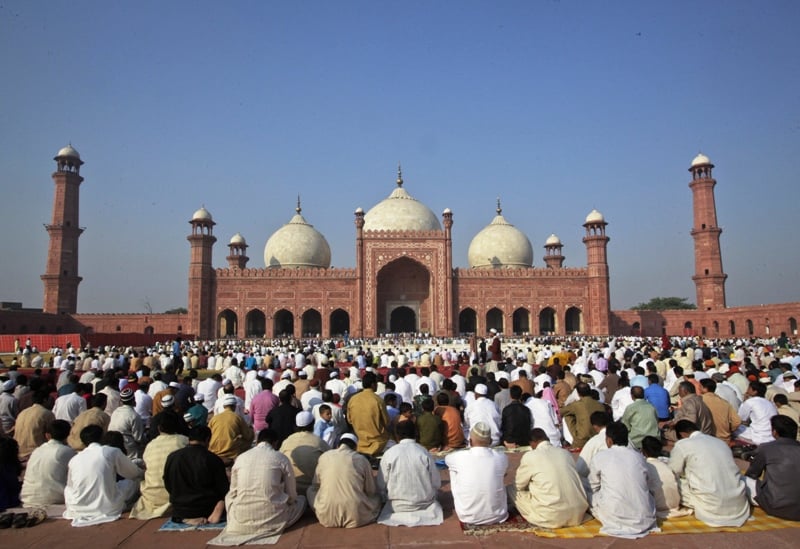
Syrian rebels claimed full control of the strategic city of Homs early Sunday following a single day of intense fighting. This development leaves President Bashar Al-Assad’s 24-year regime in a precarious position as insurgents advance towards the capital, Damascus.
Crowds of Homs residents flooded the streets to celebrate the army's withdrawal, chanting slogans such as “Assad is gone, Homs is free” and “Long live Syria, down with Bashar al-Assad.”
Rebel fighters fired shots into the air in jubilation, and demonstrators removed posters of Assad amidst widespread celebrations.
The capture of Homs marks a significant loss for the Syrian government, with the insurgents gaining control over a crucial highway junction that disrupts the connection between Damascus and the Alawite coastal strongholds, where Assad's supporters and Russian military bases are located.
Homs holds symbolic importance, as large portions of the city were decimated during previous years of siege warfare. This victory signals a dramatic resurgence for the rebel movement, which had been severely weakened after being driven out in earlier conflicts.
Rebel leader Abu Mohammed Al-Golani of Hayat Tahrir al-Sham described the capture as a historic milestone, urging fighters to spare those who surrender. Thousands of prisoners were freed as security forces abandoned the city in haste, burning documents before their retreat.
The battle now appears to be shifting towards Damascus, with protests erupting in various districts of the capital. Security forces seemed unable or unwilling to suppress the demonstrations.
Rebel commander Hassan Abdul Ghani confirmed operations were underway to secure the countryside surrounding Damascus as insurgents aimed to seize the capital. In one suburban area, a statue of Hafez al-Assad, the late president and father of Bashar, was torn down.
The Syrian army announced reinforcements in Damascus, and state media reported that Assad remained in the city. Meanwhile, rebels rapidly gained control over the southwest region in just 24 hours.
A threat to Assad's rule
The fall of Homs and the mounting pressure on Damascus pose a direct threat to the Assad dynasty's five-decade rule and the influence of its primary regional ally, Iran. Some foreign officials suggested the government could collapse within days.
US intelligence estimated Assad might be ousted within a week. The swift pace of events has alarmed Arab capitals, raising concerns over potential regional instability.
A joint statement from Qatar, Saudi Arabia, Jordan, Egypt, Iraq, Iran, Turkey, and Russia described the situation as highly dangerous, urging a political resolution. However, no consensus emerged on concrete measures, as Syria’s situation evolved rapidly.
The civil war, which began in 2011 as a revolt against Assad, has drawn in international powers, provided a breeding ground for fighters, and displaced millions of Syrians.
Hayat Tahrir Al-Sham, Syria's most powerful rebel group and a former Al-Qaeda affiliate, has raised concerns about imposing strict Islamist rule. While leader Golani has attempted to reassure minorities and the global community that his group opposes extremist attacks abroad, scepticism remains. Russian Foreign Minister Sergei Lavrov responded cautiously, saying, “The proof of the pudding is in the eating.”
Shifts among Assad’s allies
Hezbollah, a key ally of Assad backed by Iran, withdrew from the city of Qusayr near the Lebanese border before rebels took control. Reports indicate that over 150 armoured vehicles carrying hundreds of Hezbollah fighters departed the city, a critical hub for arms and personnel movement. Israeli forces reportedly struck one convoy as it withdrew.
Assad has long relied on support from allies, including Russian airstrikes and Iranian-backed forces like Hezbollah and Iraqi militias. However, Russia’s focus has shifted to the war in Ukraine since 2022, and Hezbollah’s losses in its ongoing conflict with Israel have diminished its capacity to reinforce Assad’s regime.
US President-elect Donald Trump has expressed reluctance to involve the United States in the Syrian conflict, suggesting that it should be allowed to “play out.”























COMMENTS
Comments are moderated and generally will be posted if they are on-topic and not abusive.
For more information, please see our Comments FAQ